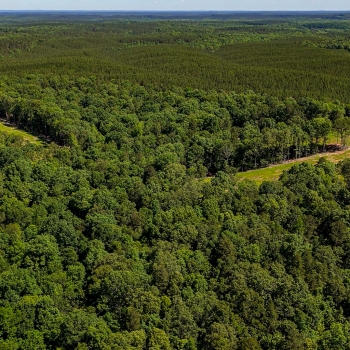Why Johnson County Tennessee Land Attracts Buyers
Johnson County offers a rare mix of high-elevation mountain terrain and usable farmland. Buyers looking for rural land in northeast Tennessee find pasture, cropland, and mature timber packed into compact, affordable tracts. Most farms are small and family-operated, with nearly 33,000 acres in agriculture. Buyers can tap into UT Extension support, broadband-connected farm sites, and a farm culture that blends hands-on knowledge with multi-use potential. Whether you want to raise cattle, plant berries, or build a hunting cabin, the landscape here supports it.
Timber and woodland make up nearly 13,000 acres, offering value for both recreation and selective harvest. Pasture and hayfields dominate, with over 9,800 acres used for forage production. Buyers can find poultry-ready acreage, fenced pasture, or open cropland in the same parcel. And with over 400 active farms, the infrastructure is already in place. Most landowners balance livestock, poultry, and crops—making the area appealing for those seeking diversified operations.
For hunters and outdoor-minded buyers, this county stands out. It's one of the few in Tennessee where legal black bear hunting occurs. Spring turkey hunting on upper ridges is strong, and many properties border national forest or private timberland. Recreational land with live water, elevation change, and road access is common. Johnson County gives buyers the freedom to homestead, run livestock, or enjoy the mountains in a place that feels remote but remains connected.
Johnson County TN Land with Mountain Terrain, Woodland, and Clear Streams
Land in Johnson County features Appalachian mountain ridges, forested slopes, and open creek valleys. Elevation ranges from 1,800 to over 3,800 feet, creating cool summers and extended fall seasons. Natural springs and tributaries run through hollows and fields, supporting native hardwoods and hay meadows. Property buyers will find a mix of pine ridges, oak-maple forest, and cleared pasture in the same parcel—perfect for blended recreational and agricultural use.
Blue Ridge Elevation Zones
Ridges in Johnson County rise above 3,800 feet in some areas. These elevations provide cooler summers, scenic views, and strong habitat for turkey, bear, and deer. They also support niche crops and highland forage production.
Forested Hardwood Slopes
Mixed hardwood stands cover over 12,000 acres of farmland. Oaks, hickories, and maples dominate. These forests provide mast for game, timber value, and seasonal color that boosts land appeal in fall and spring.
Spring-Fed Creeks and Tributaries
Dozens of creeks and springs cut through Johnson County valleys. These water features support trout habitat, irrigation, and livestock. Land with live water commands higher value due to year-round usability.
Hayfields, Poultry Operations, and Mountain Cattle Land
Most farms in Johnson County combine hay production with livestock. Over 7,000 acres are dedicated to forage crops, and cattle are the most common livestock. Some tracts also support small-scale poultry farms or goat herds. Because the terrain includes both flat valley bottom and sloped forest, buyers can choose between tillable ground, pasture, or timber. Land here supports income-producing farming without sacrificing scenery or privacy.
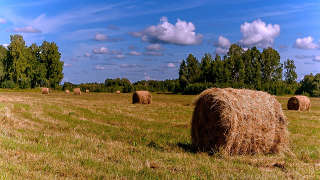
Hay and Forage Production
Forage crops are the county's top land use by acreage. Over 7,000 acres are used for hay or pasture grasses. Most farms bale hay for local cattle, and some sell to nearby counties. The highland climate supports good regrowth and clean-cut fields.
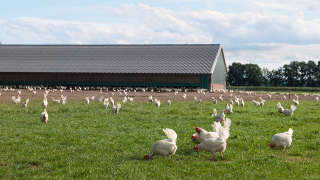
Poultry and Egg Operations
Although not as dominant as in southern counties, poultry brings in over $100K per year here. Small barns raise broilers or layers, usually alongside cattle or garden crops. Buyers can find land suited for poultry retrofits or new small-scale setups.
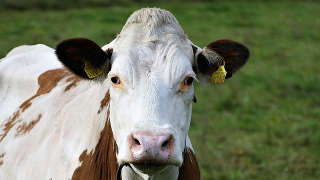
Cattle and Mixed Livestock
Cattle farming is the top livestock use in the county. Properties with fencing, water, and hay ground are common. Many farms raise both beef cattle and small livestock like goats. The mixed terrain works well for rotational grazing and off-grid setups.
Hunting Land with Bear, Turkey, and Bobcat in Johnson County TN
High elevations and mixed cover types give Johnson County strong game diversity. Public and private landholdings support both big game and small game hunters. Black bear are legally hunted here under TWRA regulations. The spring gobbler season is productive, and upland bird hunters can find grouse, quail, and woodcock. Streams offer native trout, and the varied terrain creates distinct habitat zones across relatively small acreage.
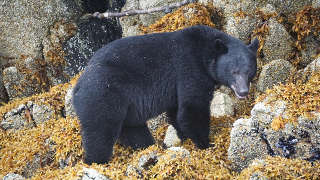
Black Bear
TWRA lists Johnson County in a regulated black bear harvest zone. Hunts are allowed by permit. Mountain ridges and thick forests provide ideal bear habitat.
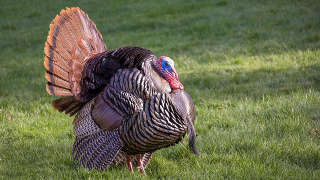
Wild Turkey
Spring turkey hunts are productive in upland zones. Many fields border timber edges, ideal for calling birds. Populations remain strong with consistent harvests.
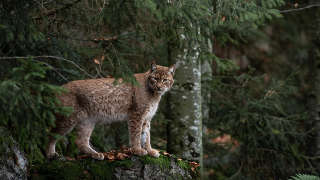
Bobcat
Legal to hunt under small game laws. Bobcats are found in wooded hollows and rocky terrain. Winter hunts provide best visibility and tracking.
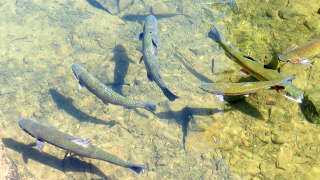
Trout Fishing
Cold mountain streams hold rainbow, brook, and brown trout. Many creeks are spring-fed with year-round flow. Public access and private land fishing available.
Hands-On Agriculture and 4-H Support in Mountain City
Johnson County offers more than land—it offers connection. The UT Extension office in Mountain City actively supports local agriculture with real-time advice, educational programming, and 4-H youth development. Programs include soil testing, pasture improvement, bee keeping, and community gardening. New landowners can connect with knowledgeable agents and hands-on programs to get started.
Buyers seeking land for homesteading or market growing will find institutional support right in town. Extension efforts in Johnson County often focus on pollinator crops, small fruit production, and sustainable grazing practices. These resources add long-term value to land purchases and help keep small farm operations viable in the modern economy.
Land for Sale in Nearby Northeast Tennessee Counties
Johnson County borders several rural Tennessee counties that also offer farmland, timber, and hunting land. These areas share similar terrain and buyer appeal. Here are three nearby counties to consider for land investment or expansion.
Carter County
Carter County lies southwest of Johnson and features riverfront land, mountain timber, and open pasture. It offers access to the Watauga River and the Appalachian Trail corridor.
Sullivan County
Sullivan County offers more developed infrastructure with a mix of farm and recreational tracts. Buyers find wooded hollows, tillable fields, and strong market access here.
Washington County
Washington County features gently rolling farmland and proximity to Johnson City. It's ideal for row cropping, hobby farming, and rural residential development.
